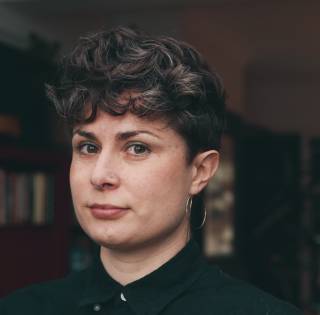Dr Lo Marshall was an IAS Postdoctoral Fellow in Equity, Diversity and Inclusion in the Arts, Humanities and Social Science in 2021-22 and a Visiting Research Fellow in 2022-23.
Dr Lo Marshall (they/them) is an interdisciplinary scholar whose research is oriented around gender, sexuality and cities, with a focus upon the lived experiences and spatial negotiations of LGBTQI+ people and communities. Concerns for equity, inclusion and justice, as well as intentions to produce research with the capacity for positive impact within and beyond academia are at the core of their research practice. In 2020, Lo was nominated as an Emerging Voice in Architecture, London Festival of Architecture and Design Museum.
Based at UCL’s Department of Geography, Lo recently completed a PhD, a participatory research project investigating the lived experiences of trans people living in Britain, across a range of spatial contexts. During their doctoral studies, they were also a postgraduate representative on the departmental Equality, Diversity and Inclusion committee. Between 2016 and 2021, Lo worked at the UCL Urban Laboratory and Bartlett School of Architecture in collaboration with Professor Ben Campkin on various projects researching LGBTQ+ nightlife in London since 1986. As part of this collaboration, Lo has co-authored an article in Soundings journal (Campkin and Marshall 2018) and three reports; guest co-edited Urban Pamphleteer #7, LGBTQ Night-Time Spaces: Past, Present and Future (Campkin, Marshall and Ross 2018); co-curated a ‘Queer Salon’ at the Museum of London (2018); contributed to exhibitions at the Whitechapel Gallery, London (‘Queer Spaces: London, 1980s – Today’ in 2019) and the Design Museum, London (Electronic: From Kraftwerk to The Chemical Brothers, July 2020 – Feb 2021), and co-devised the drag performance ‘Fabulous Façades’.
Lo’s research at the IAS was entitled Transforming brick walls: Exploring barriers to belonging and progression experienced by trans students in Higher Education. The project placed Sara Ahmed’s thinking on ‘brick walls’ in conversation with the voices of trans students who have studied Arts, Humanities and Social Science disciplines at UK-based Higher Education Institutions (HEI) since 2010, with a primary focus upon UCL. Within an interdisciplinary approach that integrated strands of trans, queer and feminist studies, with assemblage thinking and human geography, trans people’s voices and experiences are prioritised in this research. This approach was crucial to the project’s aim of identifying and working to redress administrative, intellectual, and social barriers, with an attentiveness to how intersecting oppressions, and how negotiating dominant social norms texture trans students’ undergraduate, graduate, and postgraduate studies.
 Close
Close


